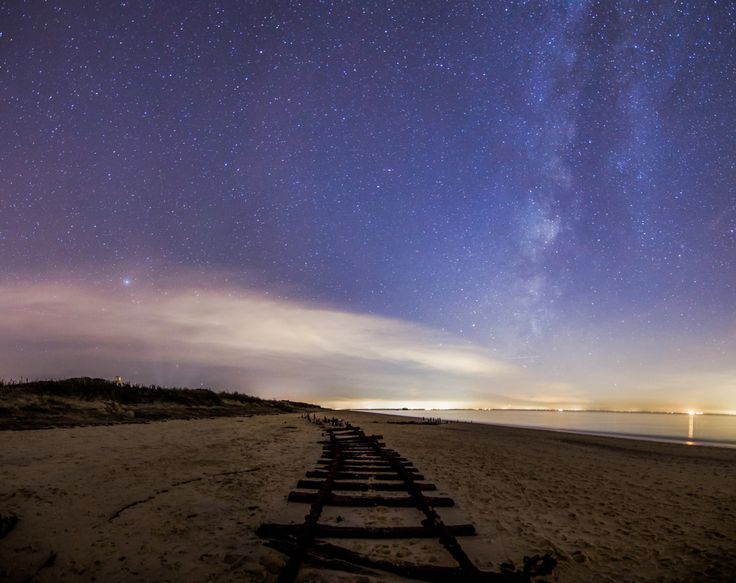Awe can be expected, but never planned because there’s always an element of surprise—before being floored.
You can set the table for surprise, but never serve it to yourself.
For me, Rome is one of the world’s most splendid tables—and once again, it didn’t disappoint.
Work Life Rewards
When you’re open enough to be surprised by a human touch or the meaning below the surface, the relief of them is like water on dry ground. They enable the next effort and opportunity. They’re how what’s brown becomes green.
But however much we try to sustain ourselves and resist the tug of preoccupation, these recognitions about life tend to slip away, and the doors that let in the fresh or even fragrant air are opened less frequently.
Life and work begin to seem petty, predictable and ungrateful; the political discourse nothing more than coarse, small and insulting, with nary a grace note. Of course, you shut yourself in, but it’s barren and unrelieved with too little life.
Making yourself available to awe flings open the doors and windows.
Aren’t vacations for letting the amazing pull you out of your rut and catapult you towards heaven?
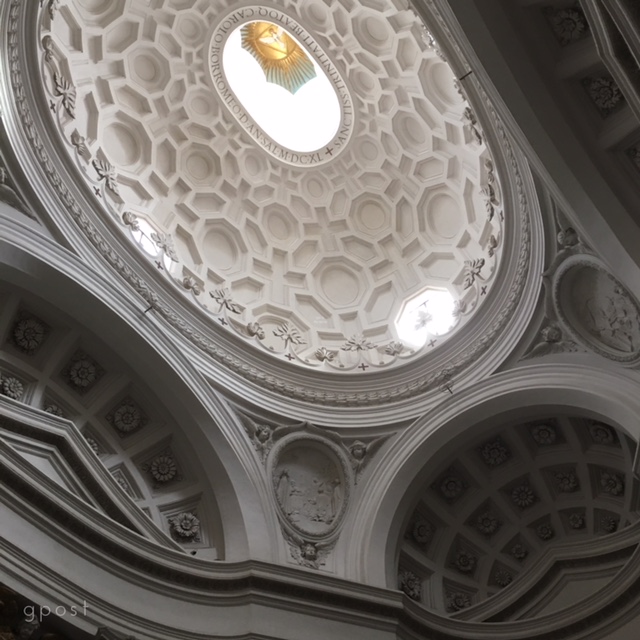
“Beam Me Up, Scottie”
Even the best trans-Atlantic flights leave you disoriented on arrival. Little did I know that my imbalance was about to enter the spin cycle on the cab ride from Fiumicino to my hotel.
The mom of a high-school son and college daughter who drove me immediately talked about her 12 shifts on/2 off, back and forth at 48E, for those arriving in Rome or departing at very high speeds through its swirl of traffic. I asked: “So what do you do when you’re not working?” and she said matter-of-factly: “Defensive shooting.” As it was dawning on me that this was “using a gun to protect yourself” she was fastening her iPhone to a dashboard mount and launching videos of her darting through an obstacle course, firing at random shapes as they emerged from behind trees or around corners. Something like the FBI training center at Quantico.
“Who took these?” I asked. “Oh, my coach gets a keek out of me,” she said (which I rapidly translated from the Italian) “so he is always taking them.” He must have had a crush on her, and I could certainly see why as she whipped through an intersection at an impossible speed and I gave myself over to the ride. “Do Italian men like their women to use guns?” I couldn’t translate what she said in response, but some of it was “there are not too many of us,” and the rest of it was something other than “No.” Doors that had been closed were already opening, and I’d barely just gotten there.
We talked about ancient pissoirs we were passing, the easiest way to get an audience with the pope, the visiting time with the best weather and fewest tourists (before Easter), hand gun regulations in the EU, a particularly egregious assault on a woman she seemed to know, something about “immigrants from the south,” how guns are treated unfairly and knives are not, what was most exceptional about her son, and where she liked to travel most (the Middle East). Like Bernini’s David whom I met a few days later, I was fully locked and loaded by the time I got out of her cab and dove into my first afternoon.
Ciao Roma!
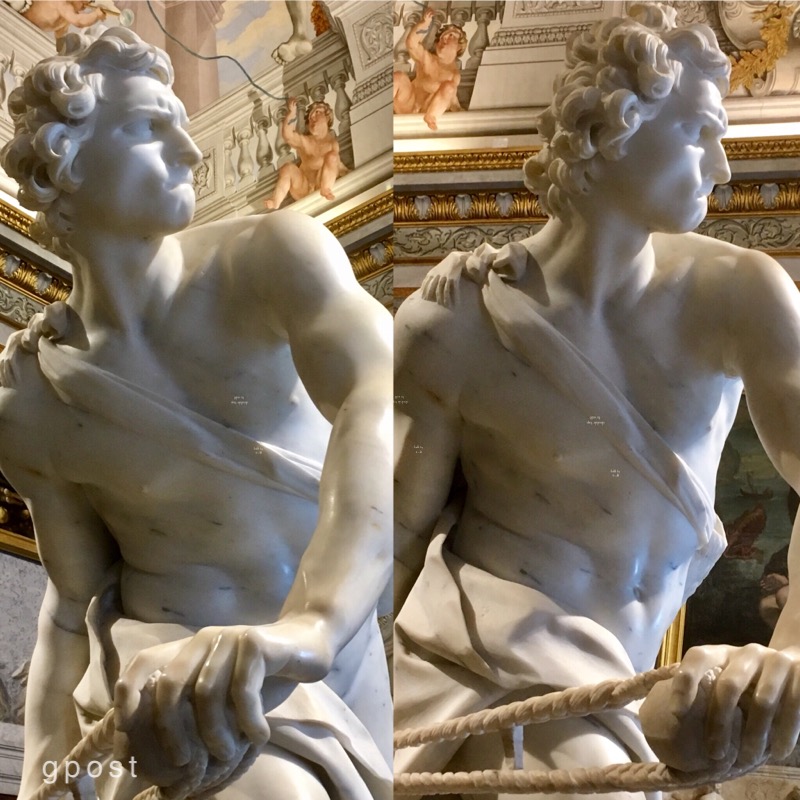
Santa Prassede
Between the jet lag and the cab ride, I was primed for awe but never realized how much until afterwards.
Rome’s seven hills make it anything but flat, so it was down to Barberini Plaza from the hotel and up to the intersection of two narrow streets where, in each direction, there’s a clear view of the obelisks and monuments of four distant plazas (“a masterpiece of Baroque city planning”) if you can brave looking amidst the racing traffic.
I was headed towards Santa Maria Majore, a 4th Century basilica that was another down-then-up walk away. It felt good to get the blood flowing.
The basilica was vast, golden and humming with a life that included stand-up confessions being heard from open windows in the side aisles and the murmurs of afternoon mass from a hidden chapel. The pictures I’d seen in art class now had a context. I could appreciate the distinctiveness of the church’s soaring, rectangular space and spiraling, cosmatesque floors. I’d finally stopped for long enough to realize that this wasn’t Kansas anymore.
I knew there was another ancient church nearby and got directions. As I approached Santa Prassede, I might have seen the chance of being thunderstruck if I’d been thinking about anything other than finding my way to its simple doorway in the suddenly fading light. The place announces itself so softly, you barely know that it’s there.
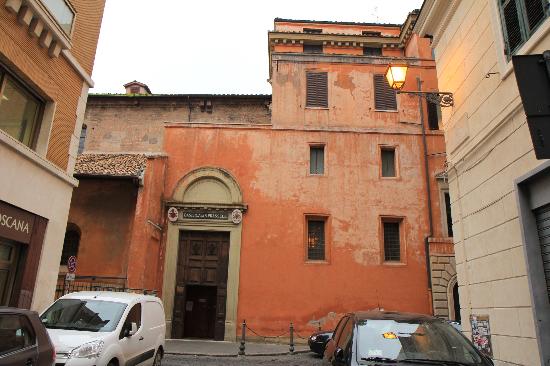
You cross into St. Prassede from the side, expecting a similarly modest vestibule within. At first, it is hard to tell. There is more light from its candles than its electricity and it takes time for my eyes to realize how much it soars. There are mosaics on every surface of the apse that looms to the right behind the main altar, their tiny squares of gold and glaze not quite resolving into pictures in the half-light.
This space is also a hive of visitors, but here they’re more hushed and reverential as they cluster in groups or wander into alcoves. Their reserve tells me to approach more gingerly this time, and I sit in a pew to figure out how. An organ below the altar begins to trumpet through the gorgeous fragments of an unfamiliar hymn. He’s practicing I realize, and his repetitions and variations cushion us all with sound as the shadows lengthen and the sun sets. The dusk is rarely as hopeful as the dawn, and more mysterious.
Roman churches are often dark when you enter them, particularly on late fall afternoons, but a euro in a light box can usually be counted on to illuminate the Caravaggio painting or Bernini sculpture that you’ve come to see. You pay as you go when lighting candles as well. I had noticed such a box with its 1E sign in the front as I looked around but didn’t know what it would light.
A young man and woman came in just after me. As I watched them, she seemed tentative and stood off to the side, but he was more purposeful, kneeling and crossing himself at various stations before lying prostrate on the floor before the main altar for 30 seconds or maybe a minute. My own reasons for being there seemed inadequate in the face of his, but then he walked to the light box.

I took in a breath the way you do when the water suddenly goes over your head. The room had changed that much. Everyone looked towards the light with hungry eyes including the young man, his arms stretched out in an embrace. The volume of space, the envelope of music, and how we shared them were so ravishing as to be unnerving. This picture only gestures towards its suddenness and three-dimensionality.
Awe overtakes and sometimes overwhelms you. You feel you know something bigger and truer without being sure of exactly what it is. It engages your head but also your heart. You might also call it delight, amazement or wonder. It’s a channel that suddenly opens and disrupts you with a sense of deeper possibilities.
And I’d found it on my first day away.
The Bonus Round
As I’m writing this post, there’s a knock at my door and it’s a neighbor with cookies. Our friendship goes back decades to when her marketing company designed a logo for a company I was starting. Our work together made her friend as well as colleague.
She said this will be her happiest Christmas in years. She’d had a child 40 years ago as a college freshman, gave him up for adoption, had gone on to marry and have a family, and in September this son had found her, after searching for more than five years.
He is “amazing, successful, handsome, writes beautifully, is insightful, has his own beautiful children” and now has returned to her, a gift she’d never expected. He became a surgeon but could never have known that he came from a long line of doctors and surgeons, including her father and his grandfather.
The wonder of it was all over her face. She didn’t know she could still be this surprised. She was lit from inside with awe, and it had changed everything.
The Shortest Day of the Year
Last Thursday was the winter solstice, the shortest day of the year. From here on, every day until the summer solstice (6 months from now) is longer and a little brighter. It’s the backstory of the season’s holidays. These are the days for new beginnings and for miracles like Christmas.
The authors of our calendars knew what they were doing when they began each year with a measure of awe.
Note to readers: in a different form, this content was included in my December 24, 2017 Newsletter, the second of what turned into three posts about awe.
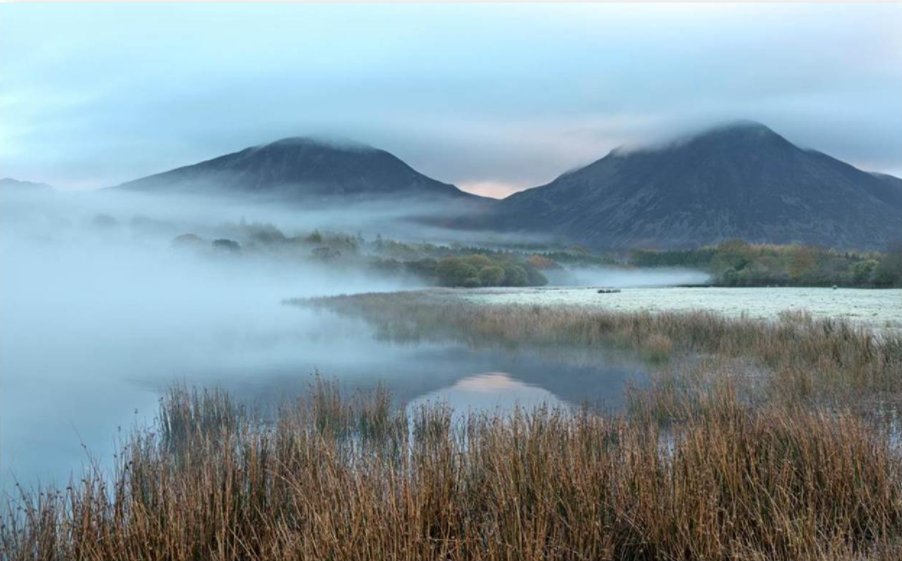
 I recommend Casper Henderson’s A New Map of Wonders: A Journey in Search of Modern Marvels. It’s a rambling, lively and insightful discourse on the wonders that are all around us.
I recommend Casper Henderson’s A New Map of Wonders: A Journey in Search of Modern Marvels. It’s a rambling, lively and insightful discourse on the wonders that are all around us.